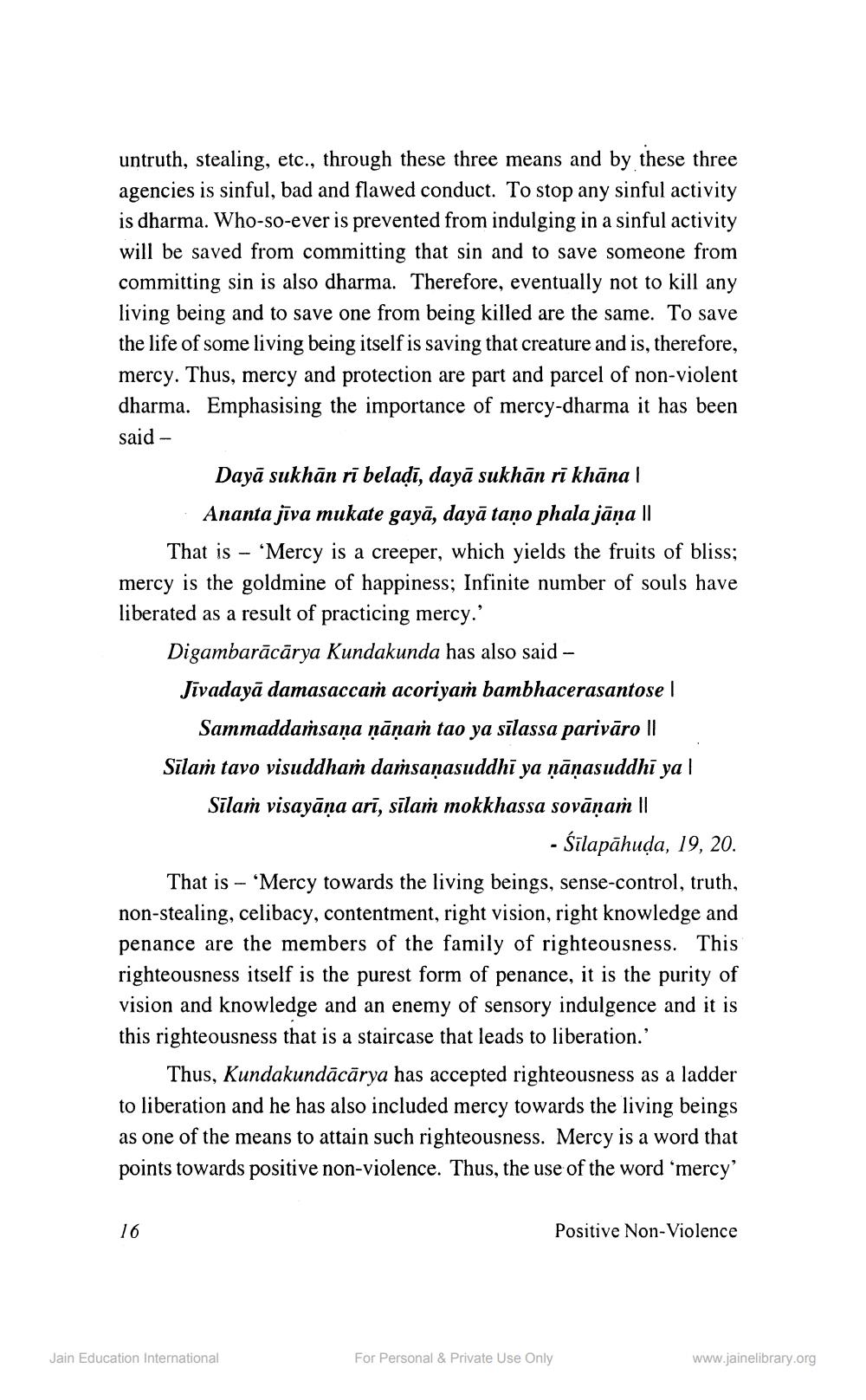________________
untruth, stealing, etc., through these three means and by these three agencies is sinful, bad and flawed conduct. To stop any sinful activity is dharma. Who-so-ever is prevented from indulging in a sinful activity will be saved from committing that sin and to save someone from committing sin is also dharma. Therefore, eventually not to kill any living being and to save one from being killed are the same. To save the life of some living being itself is saving that creature and is, therefore, mercy. Thus, mercy and protection are part and parcel of non-violent dharma. Emphasising the importance of mercy-dharma it has been said -
Dayā sukhān ri beladi, dayā sukhān ri khāna |
Ananta jīva mukate gayā, dayā taạo phala jāņa ||
That is - Mercy is a creeper, which yields the fruits of bliss; mercy is the goldmine of happiness; Infinite number of souls have liberated as a result of practicing mercy.'
Digambarācārya Kundakunda has also said – Jīvadayā damasaccaṁ acoriyam bambhacerasantose |
Sammaddamsaņa ņāņam tao ya sīlassa parivāro || Silam tavo visuddham daņsaņasuddhi ya ņāņasuddhi ya |
Sīlam visayāņa arī, sīlam mokkhassa sovāņam ||
- Silapāhuda, 19, 20,
That is - Mercy towards the living beings, sense-control, truth, non-stealing, celibacy, contentment, right vision, right knowledge and penance are the members of the family of righteousness. This righteousness itself is the purest form of penance, it is the purity of vision and knowledge and an enemy of sensory indulgence and it is this righteousness that is a staircase that leads to liberation.'
Thus, Kundakundācārya has accepted righteousness as a ladder to liberation and he has also included mercy towards the living beings as one of the means to attain such righteousness. Mercy is a word that points towards positive non-violence. Thus, the use of the word 'mercy'
16
Positive Non-Violence
Jain Education International
For Personal & Private Use Only
www.jainelibrary.org




